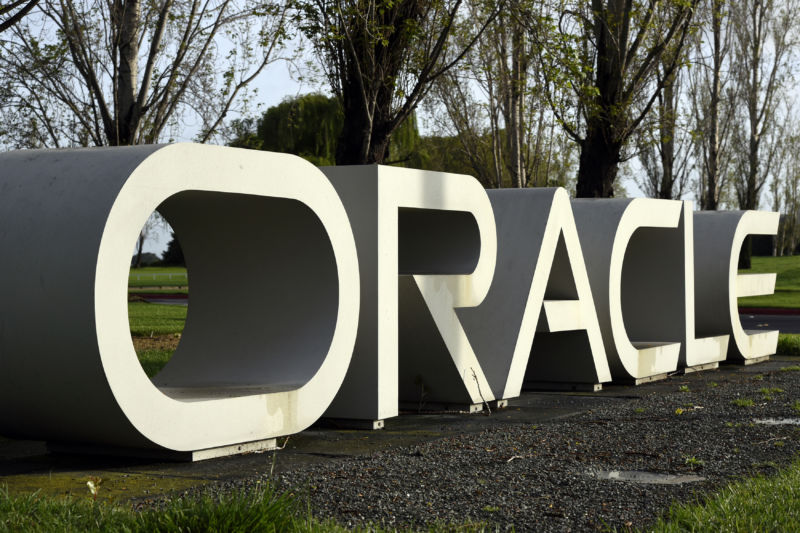API copyrights –
A 2018 ruling on API copyrights could cause problems for the software industry.

Enlarge/Signage stands at the Oracle Corp. headquarters campus in Redwood City, California, on March 14, 2016.
The Supreme Court hasagreed to reviewone of the decade’s most significant software copyright decisions: last yearrulingby an appeals court that Google infringed Oracle’s copyrights when Google created an independent implementation of the Java programming language.
The 2018 ruling by the Federal Circuit appeals court “will upend the longstanding expectation of software developers that they are free to use existing software interfaces to build new computer programs, “Google wrote in itsJanuary petitionto the Supreme Court.
The stakes are high both for Google and for the larger software industry. Until recently, it was widely assumed that copyright law didn’t control the use of application programming interfaces (APIs) —standard function calls that allow third parties to build software compatible with an established platform like Java.
But the legal foundation of this assumption was always a bit shaky. And in 2014, the Federal Circuit Appeals Courtblew it upwith a ruling holding that software APIs actually can be copyrighted. A few years later, the same courtheldthat Google’s use of the Java APIs was not protected by copyright’s fair use doctrine.
“The Federal Circuit’s decision threatens the continued vitality of software innovation,” copyright scholar James Grimmelmanntold meearlier this year. He pointed out that allowing copyright protection for APIs could empower a new generation of copyright trolls that acquire the rights to old software and then sue people building newer software on top of what they thought were open standards. It could also force companies to make software that’s deliberately incompatible with its rivals’ products, merely to avoid getting hit with a lawsuit.
Why the case matters
The Supreme Court agrees to review only a small fraction of lower court decisions. As it often does for cases involving important policy questions, the high court asked the Trump administration to weigh in on whether the case merited Supreme Court attention. The governmentsaid no, arguing that the Federal Circuit Appeals Court had reached the right result when it held that software could be copyrighted.
But others disagreed. A number of legal scholars, public interest groups, and software companies weighed in on the case, with many arguing that the Federal Circuit’s ruling would be detrimental to the software industry. Microsoft, for example,arguedthat the ruling “threatens the viability of the interconnected software ecosystem.”
A group of legal scholarspointed outthat different appeals courts have reached conflicting opinions about the legal status of APIs. This situation, known as a “circuit split,” creates uncertainty about how the law will be applied in the future. The legal scholars urged the high court to take the case so it could establish a uniform legal standard nationwide.
The Supreme Court seems to have found these arguments persuasive.
The Federal Circuit Appeals Court that produced theGoogle v. Oracleruling has become something of a whipping boy for the Supreme Court in recent years. The court has exclusive jurisdiction over patent cases nationwide, and it has used that power to make the law significantly more patent-friendly. Over the last 13 years, the Supreme Court has tried to inject some common sense back into patent law byrepeatedlyoverturningpatent-friendly decisions by the Federal Circuit.
Oracle’s fight with Google focuses on copyright law, not patents. But because the case initially included some patent cases, the Federal Circuit wound up in charge of the entire case. And the nation’s most pro-patent appeals court turns out to favor expansive interpretations of copyright law, too.
The Supreme Court hasn’t yet announced when it will hear Google’s challenge to Oracle’s victory, but it’s likely to occur sometime in the new year, with a ruling before the current court session wraps up at the end of June. We’ll cover the case every step of the way.






GIPHY App Key not set. Please check settings